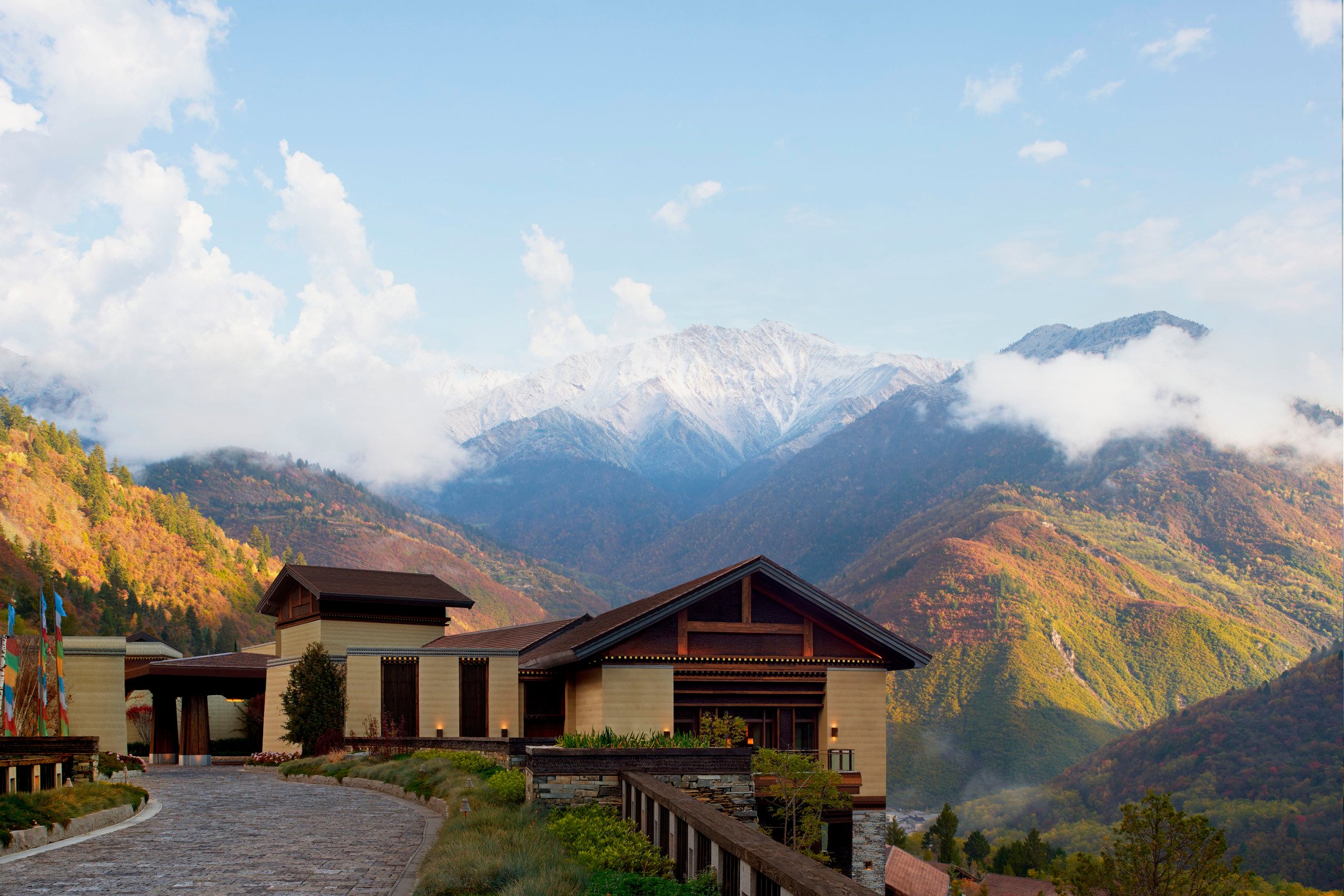In Conversation: Marcel Damen, General Manager of Rissai Valley, a Ritz-Carlton Reserve
By WATG
October 23, 2024
Rissai Valley, a Ritz-Carlton Reserve, is China’s first Ritz-Carlton Reserve and a winner of the Resort category at the 2024 AHEAD Asia Awards. Situated near the UNESCO World Heritage-listed Jiuzhaigou, or ‘Ravine of Nine Villages,’ it serves as a stunning showcase of Tibetan history and culture. Through dedicated Ritz-Carlton Reserve Personal Hosts, guests are transported into another world where they shed their busy city lives to enter a realm of relaxation. We sat down with Marcel Damen, General Manager of Rissai Valley, a Ritz-Carlton Reserve, and Chiara Calufetti-Lim, Principal & Studio Director of Architecture, for a conversation on designing exclusivity that is luxurious and at the same time sustainable.
Marcel Damen, General Manager
“At Rissai Valley, we offer a true disconnect from the hustle of city life, allowing guests to recharge in a serene mountain setting. The property encourages relaxation and reflection, where moments with loved ones—perhaps a quiet evening on a villa terrace with a glass of wine—become the ultimate luxury. We focus on creating human connections, offering heartfelt, genuine care that goes beyond traditional luxury service.”

Chiara Calufetti-Lim, Principal & Studio Director of Architecture
“By incorporating vernacular elements like intricate woodwork and stone masonry, we create a space that not only feels luxurious but also deeply connected to the local culture. The architecture helps establish a sense of place, allowing guests to feel as though they’ve been transported into a different world where nature, culture, and design are seamlessly integrated.”
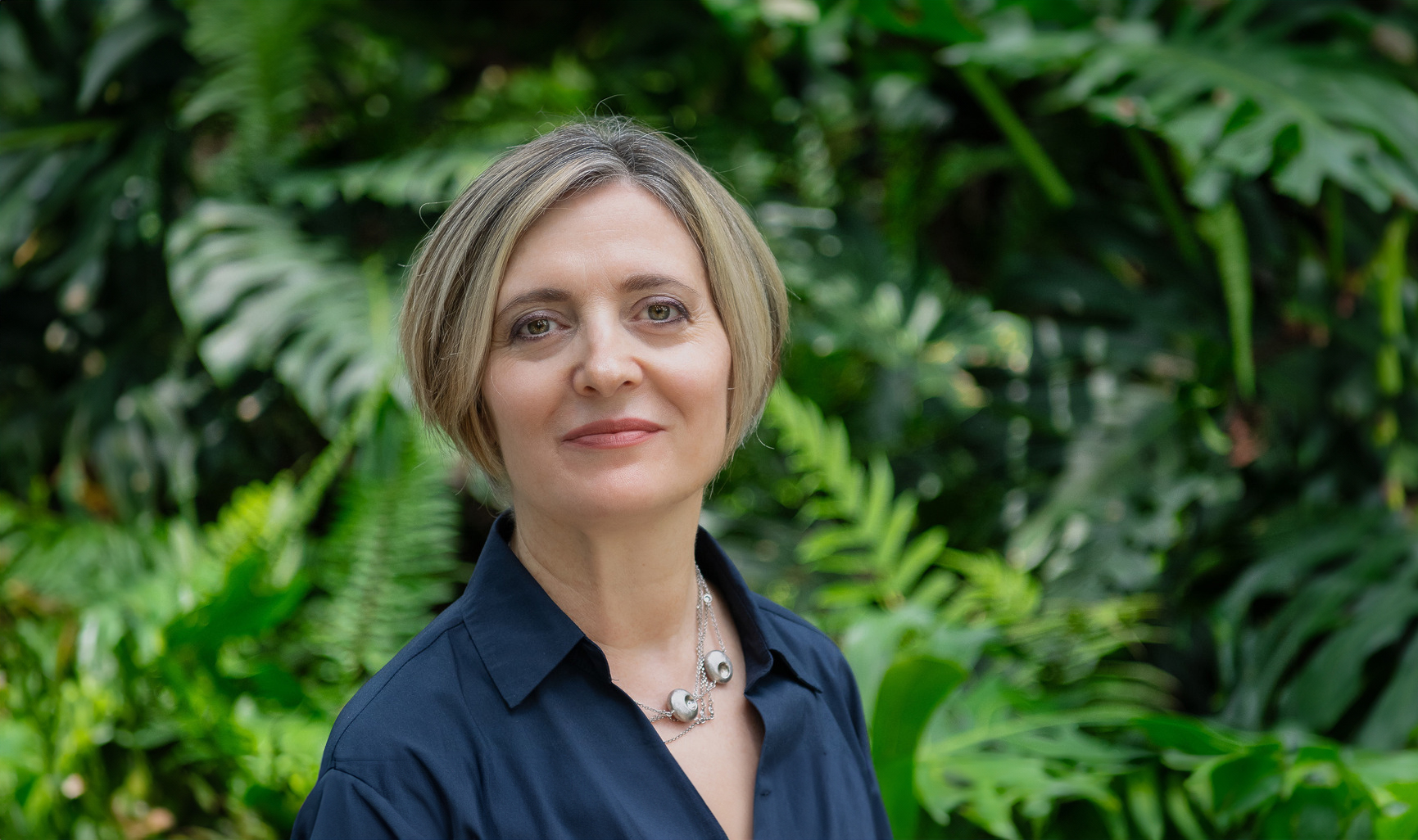
How does the resort achieve the "hide-away" experience?
Marcel Damen: Rissai Valley, a Ritz-Carlton Reserve, is nestled in the breathtaking Qinghai-Tibet Plateau in southwestern China, offering guests rare and immersive experiences that connect them deeply to the landscapes, culture, and traditions of the UNESCO World Heritage-listed Jiuzhaigou Valley. Every detail within the resort is imbued with meaning and tells a unique story.
From the moment guests arrive, they are introduced to this rich cultural journey through our welcome ritual. A Personal Host greets guests with the ceremonial offering of a Hada, a traditional scarf symbolizing honor and respect, alongside a locally inspired welcome drink. This is accompanied by a graceful Tibetan dance or song, performed by our skilled experience experts, setting the tone for a truly immersive stay.
Guests can partake in exclusive Reserve activities, such as learning the craft of making Tibetan incense, visiting local Tibetan families, and participating in other culturally rich traditions. Tucked away in a secluded, nature-filled setting, Rissai Valley is a sanctuary for those seeking peace, exclusivity, and unparalleled comfort, offering a perfect retreat from the world.
Chiara Calufetti-Lim: The luxurious “hide-away” experience is achieved through a combination of strategic site selection and considered design. The resort is surrounded by stunning natural beauty, creating an immediate sense of seclusion and tranquility. The architecture of the resort enhances this feeling by incorporating traditional Tibetan design elements and blending seamlessly with the natural landscape. The use of local materials and traditional craftsmanship not only roots the resort in its cultural context but also provides an immediate tactile connection to the surroundings. Private villas are thoughtfully positioned to offer uninterrupted views and ensure privacy, allowing guests to feel completely immersed in the serene environment.
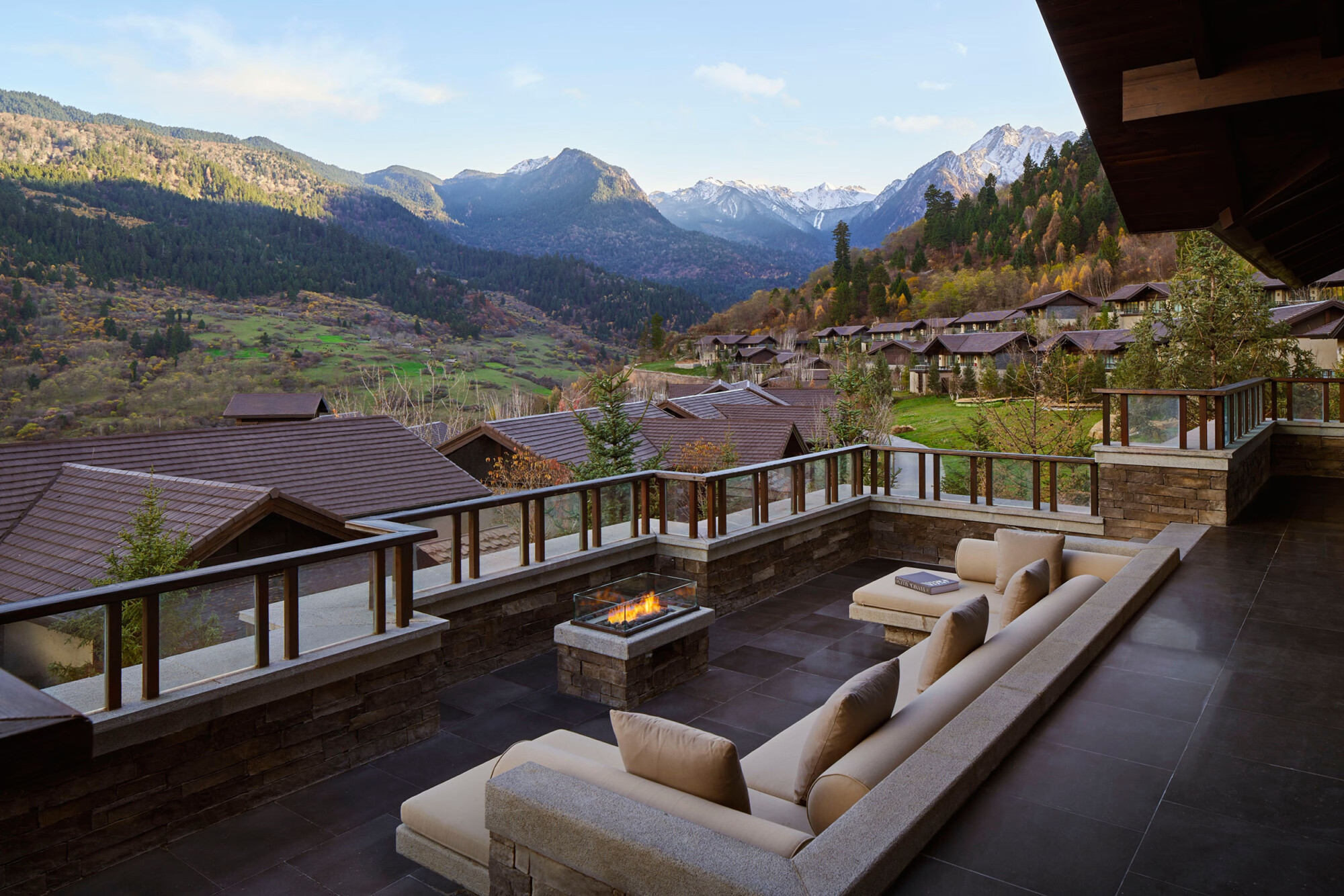
What role does architecture play in enhancing the guest experience?
Marcel Damen: The exterior of the property is inspired by the traditional architecture of the Qiang minority, one of China’s oldest ethnic groups, with roots tracing back over 3,000 years. The Qiang people historically lived in the Aba Tibetan and Qiang Autonomous Prefecture in Sichuan Province, where our property is located.
Our dedicated staff are trained to share stories about the rich architectural heritage of the Qiang people. Historically, the Qiang were known for their bravery, building villages in river valleys or perched on mountainsides, often surrounded by clouds and mist, giving their homes a dreamlike, ethereal quality. This earned them the nickname “people on the clouds.” Their iconic watchtowers, once used for defense, are now cultural treasures. The design of our hotel draws heavily from these watchtowers, especially in the main building, where you’ll find high stone walls that evoke the appearance of a fortress. From a distance, the property resembles a traditional Tibetan and Qiang village nestled on the mountainside, with the main building standing as the strongest fortress.
The villas are designed with deep respect for the local heritage, incorporating elements and materials inspired by traditional villages and the surrounding landscape. The interior décor features artwork and decorative pieces sourced from local homes, each reflecting the beauty and cultural significance of the region.
Our guests are often captivated by the history and significance of the architecture and enjoy sharing these stories with friends and family. This helps preserve and celebrate the culture, allowing more people to explore the rich history of the region. The unique architectural design of Rissai Valley, a Ritz-Carlton Reserve, plays a vital role in connecting guests to the past, making it a significant cultural experience.
Chiara Calufetti-Lim: Architecture plays an integral role in creating the experience at Rissai Valley. The design carefully balances luxury with a deep respect for the natural and cultural context of Jiuzhaigou – a destination where travelers near and far come to marvel at nature’s wonders. Vernacular architectural elements, such as intricate woodwork and stone masonry, are combined with modern luxury to create a unique and authentic atmosphere. This approach provides visual and aesthetic appeal, and establishes a sense of place and connection to the locale. The resort’s ability to transport guests into a different world is what makes it one-of-a-kind, where the seamless integration of nature, culture, and luxury becomes a standout feature of their stay.
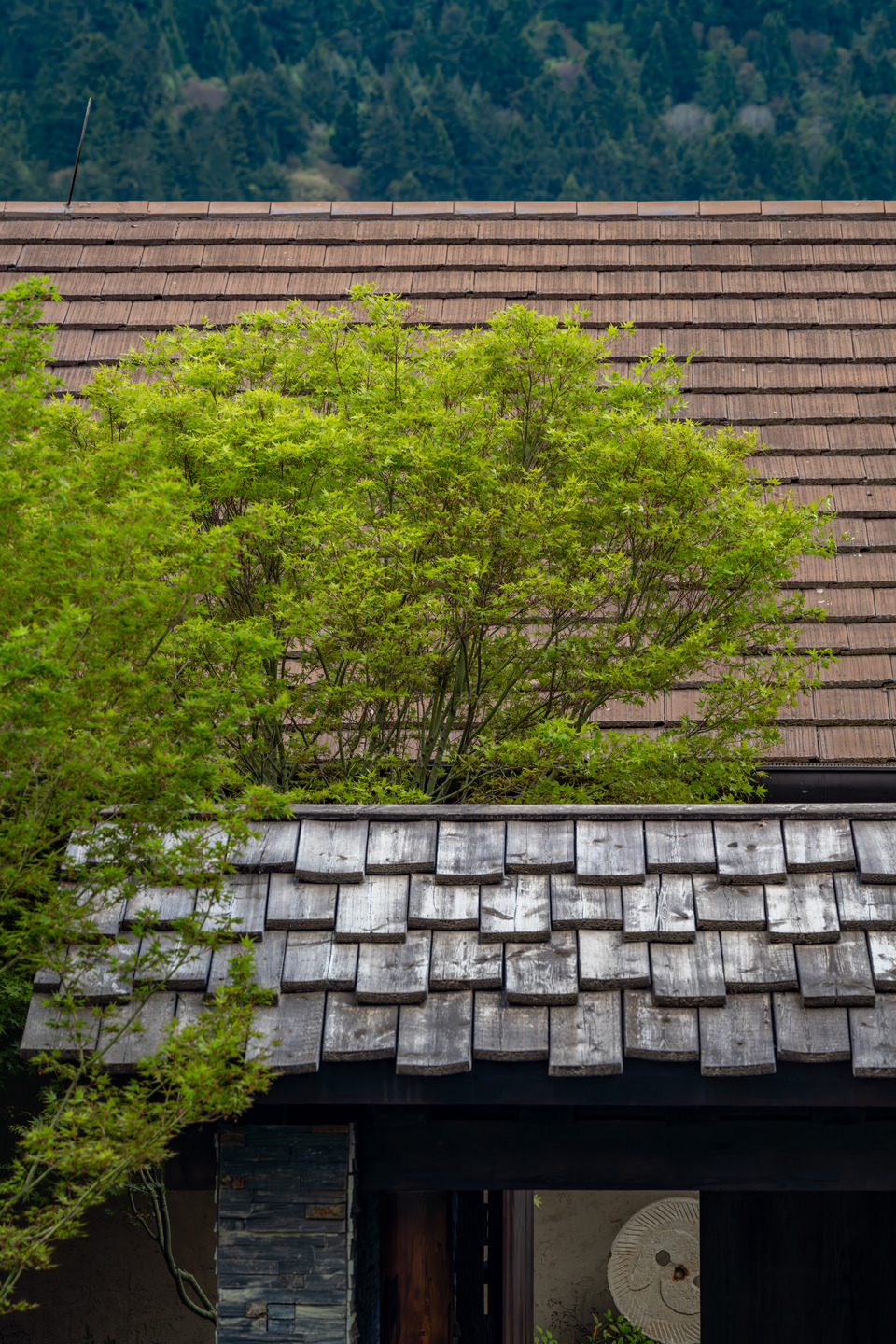
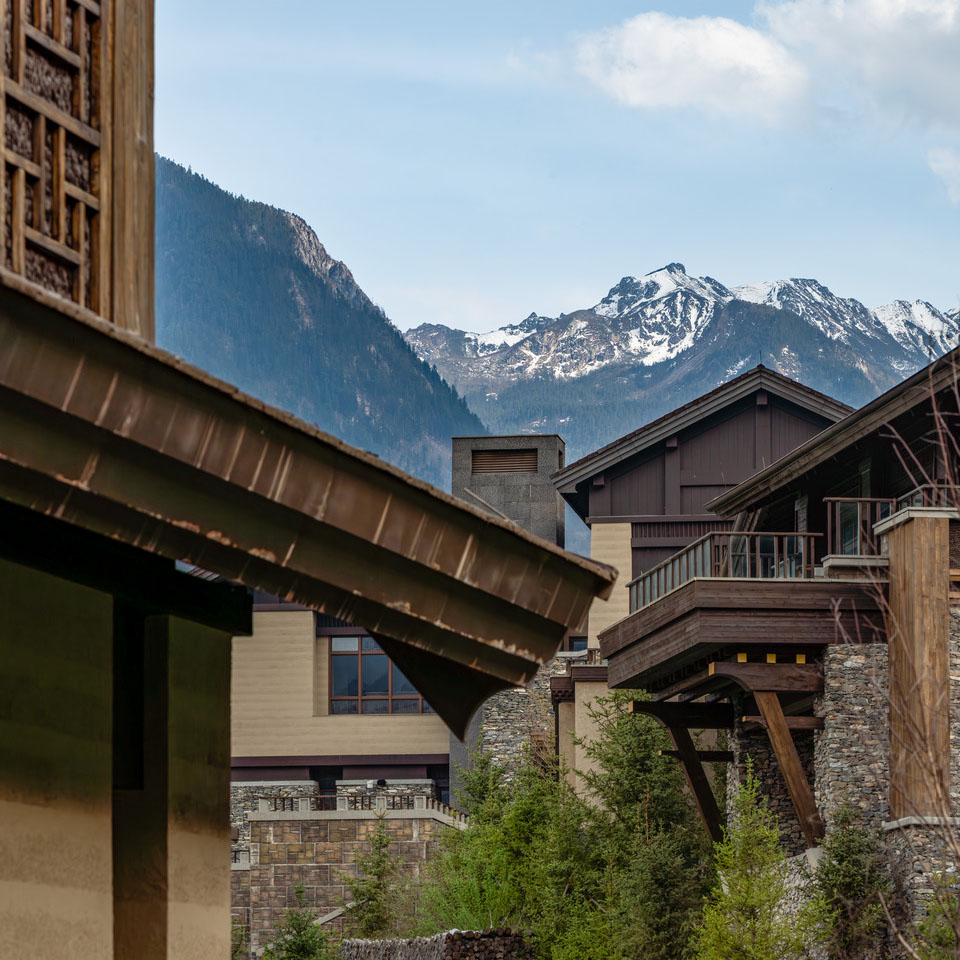
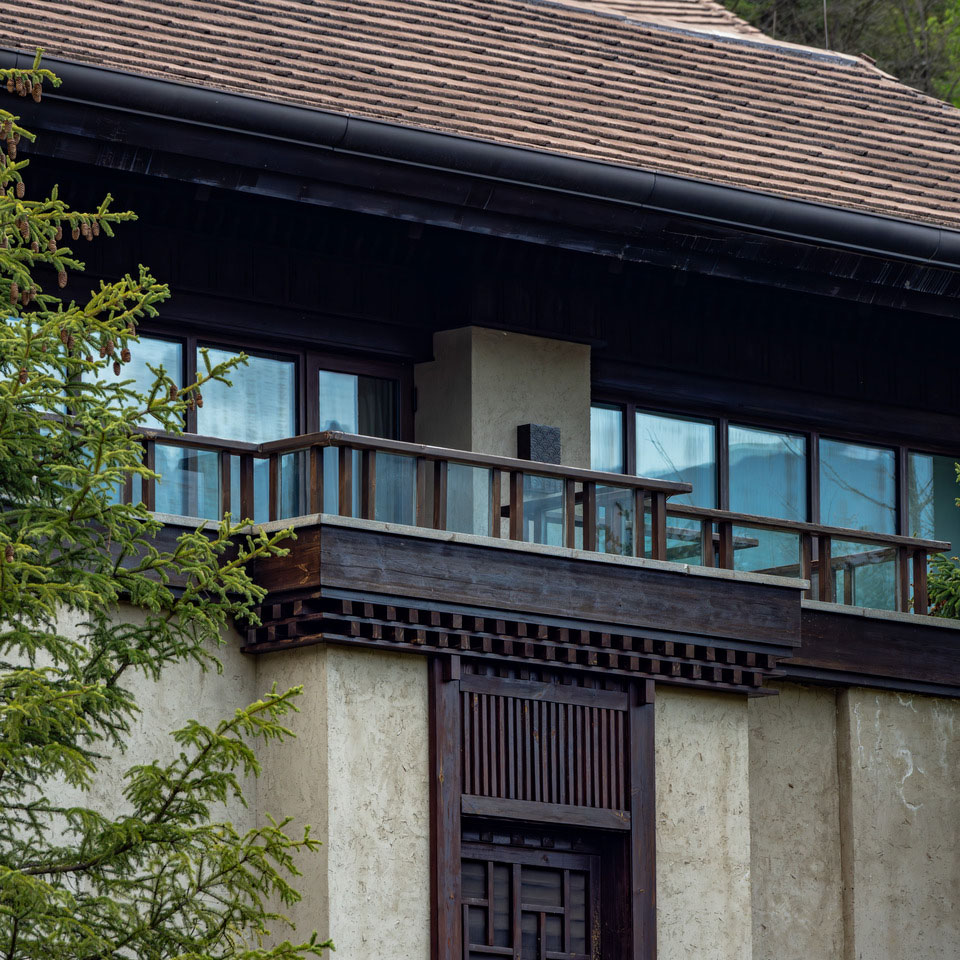
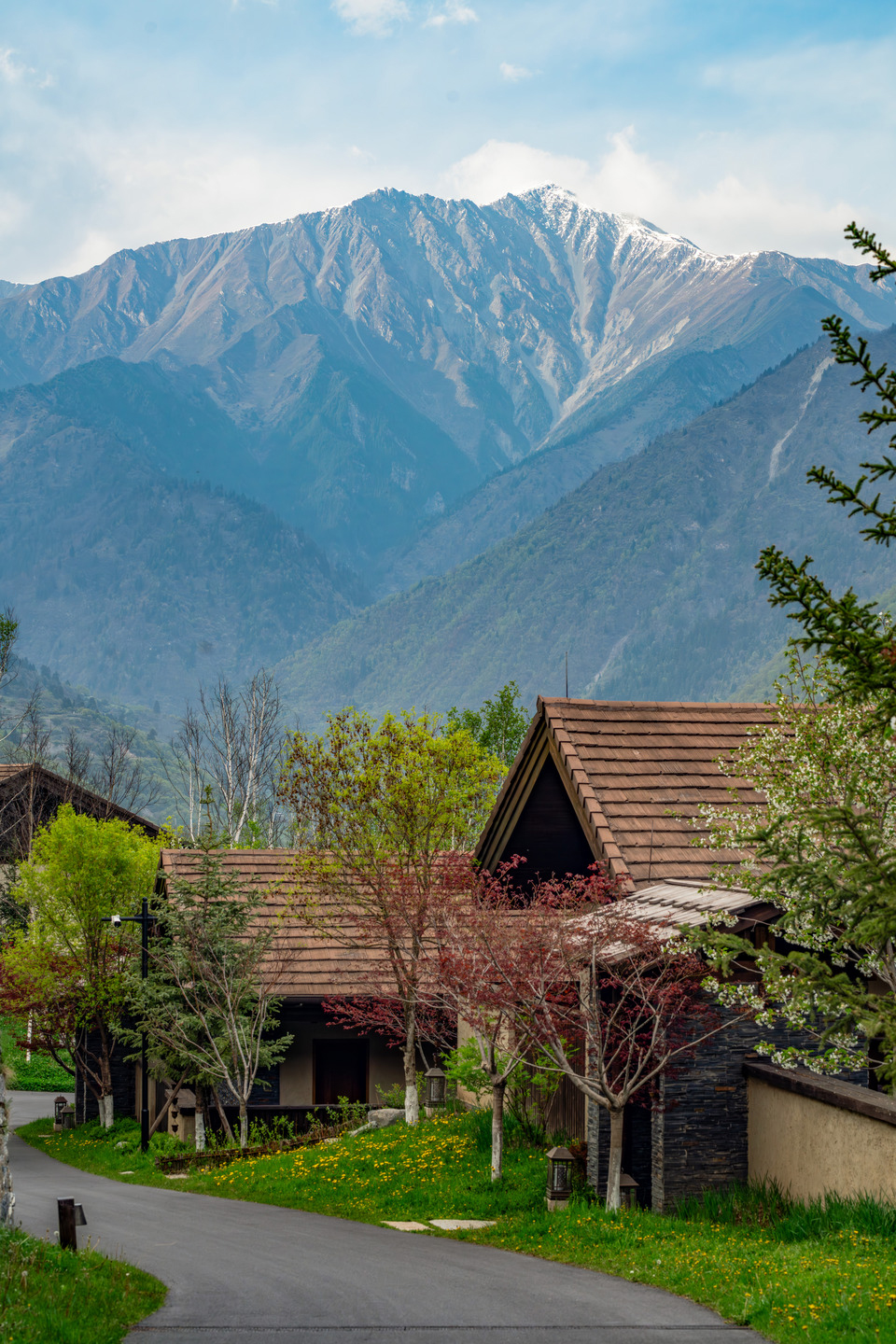
How did sustainability strategies benefit the hotel’s operations and its harmony with the environment?
Marcel Damen: Our goal is to offer luxury without compromising on sustainability. For example, we’ve cultivated a vegetable garden that provides fresh, locally grown greens for guests to enjoy while dining in our restaurant. In the evening, we dim the lighting in the villas and around the resort to align with the ambiance of the nearby village, reducing light pollution and enhancing the harmony of our architectural design. We also source most of our ingredients locally, ensuring that the rich flavors of our dishes reflect the freshness and quality of the region’s produce.
Chiara Calufetti-Lim: The sustainable systems established during the design phase of Rissai Valley are aimed at significantly contributing to the hotel’s successful operation and its harmony with the surrounding environment. Key sustainable concepts include the integration of the hotel ground with local farmers to provide farm to table vegetables and fenestration strategies which were also implemented in the villas where we concentrated the openings in the direction of the sun while minimizing lateral and back openings. This follows the traditional strategy of Alpine architecture where walls work to maximize thermal mass and openings were minimized to reduce heat loss. This design maximizes natural day light and ventilation, reducing energy consumption. Additionally, the use of locally sourced materials not only supports the local community but also reduces the carbon footprint associated with transportation. These sustainable practices enhance operational efficiency and at the same time align with the resort’s commitment to preserving the natural beauty and ecological integrity of its surroundings.
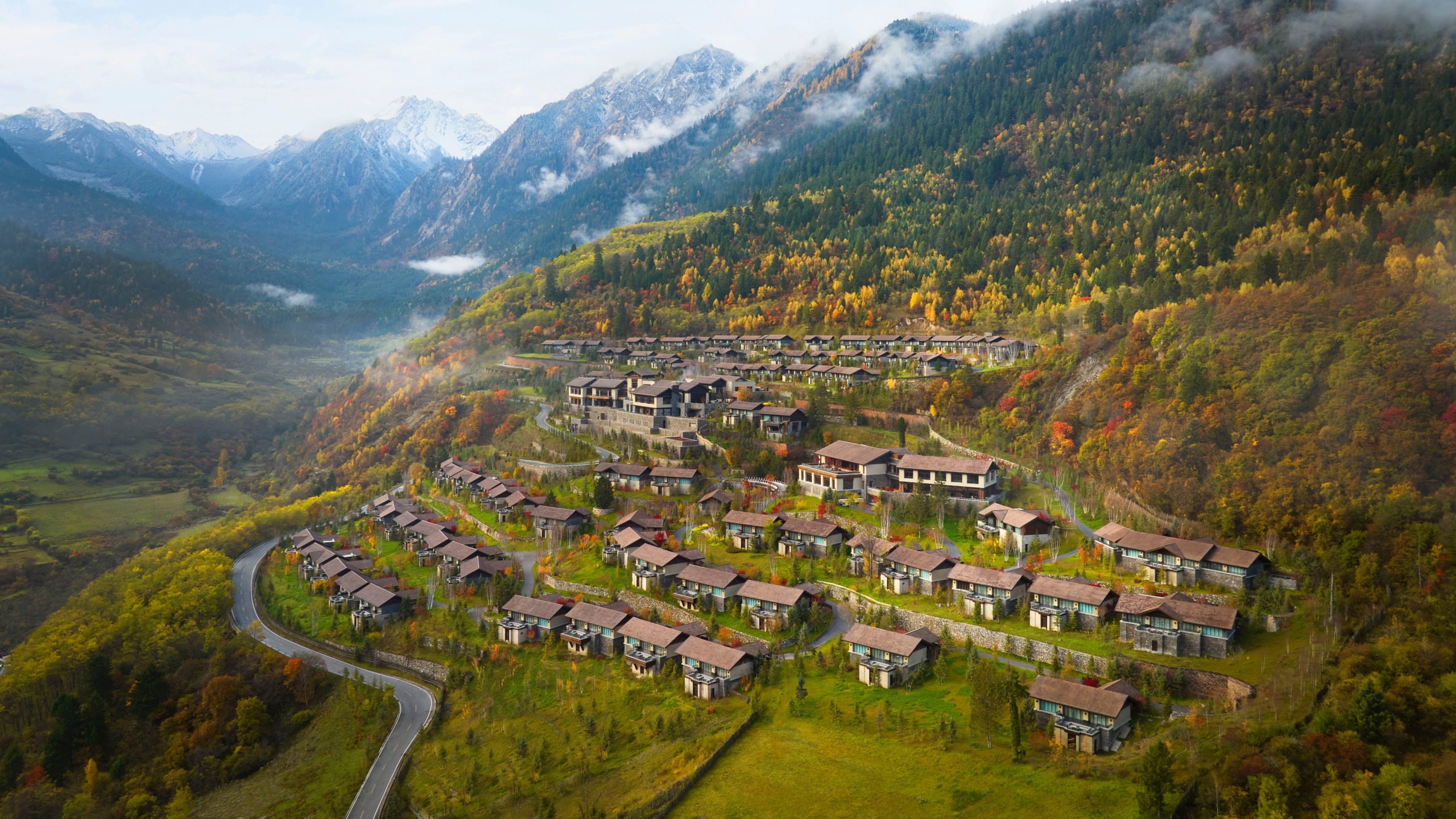
Rissai Valley attracts well-traveled guests. How does the resort continue to surprise and delight them?
Marcel Damen: Rissai Valley is a place where you can completely disconnect from the hectic pace of city life and escape the crowded resort destinations. You can truly recharge in the serene embrace of the mountains, feeling the fresh breeze on your face as you stroll through the Reserve’s woodland-style gardens. Expansive plateaus are blanketed in wildflowers, and as the seasons shift, so does the vibrant display of flora and fauna throughout your stay. Overlooking a valley where yaks peacefully graze, you’ll capture moments that will linger in your memory long after you leave.
As night falls, a sky filled with stars stretches above the property, offering complete silence as you relax with loved ones on your villa terrace. This is a place designed to help you unwind, relax, and rejuvenate.
Our ultra-luxury approach is focused on fostering meaningful human connections through authentic motives and genuine care. Luxury here is not about the glitz or extravagance but is subtly woven into every detail through the warmth of hospitality. True care is the ultimate expression of luxury, and we believe that people deserve not just to be looked after, but to be deeply cared about. Our vision for luxury travel is a deeply personal, transformative experience—guided by the power of human connection.
Chiara Calufetti-Lim: From an architectural point of view, we were inspired by the vernacular architecture and had distilled its essence through our reinterpretation. We did not simply replicate the traditional buildings that exist but rather gestured towards it through our hospitality designer’s lens. The result is a resort that authentically embodies its surroundings while delivering the exceptional luxury that define the Ritz-Carlton Reserve experience. We believe this is the magic that captivates and brings delight to guests.
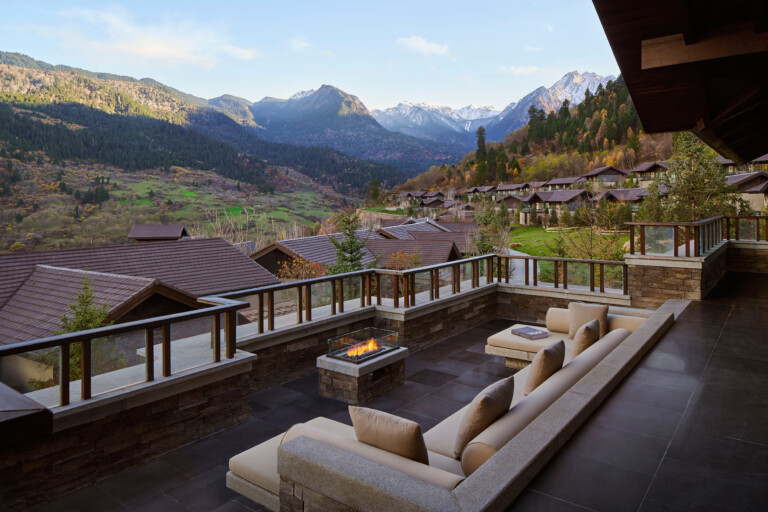
- China
Rissai Valley, a Ritz-Carlton Reserve
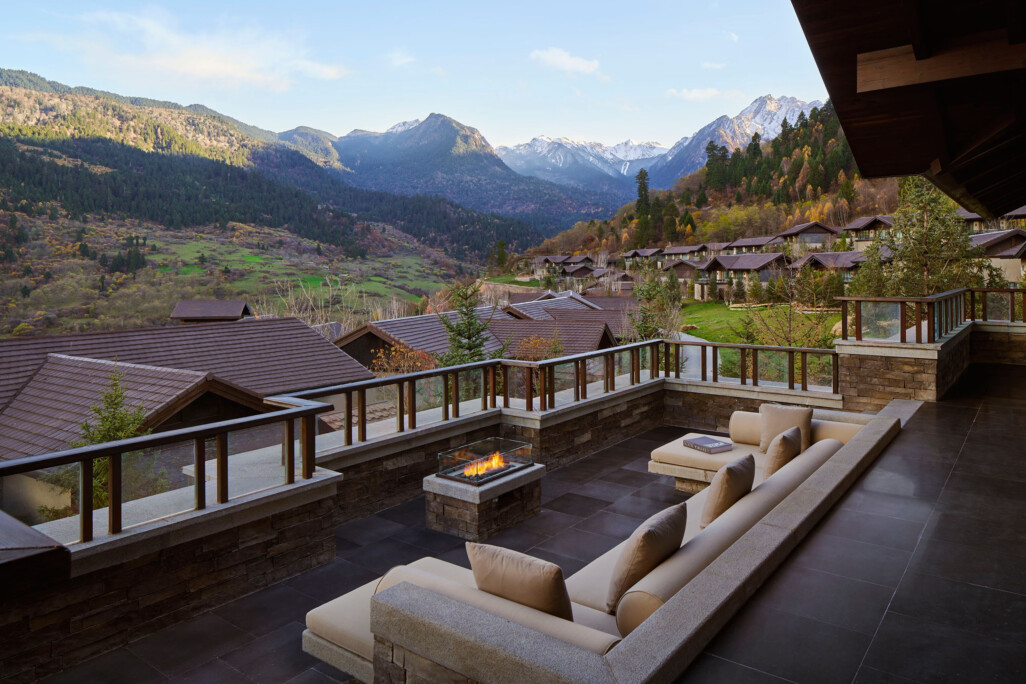
- China
Rissai Valley, a Ritz-Carlton Reserve
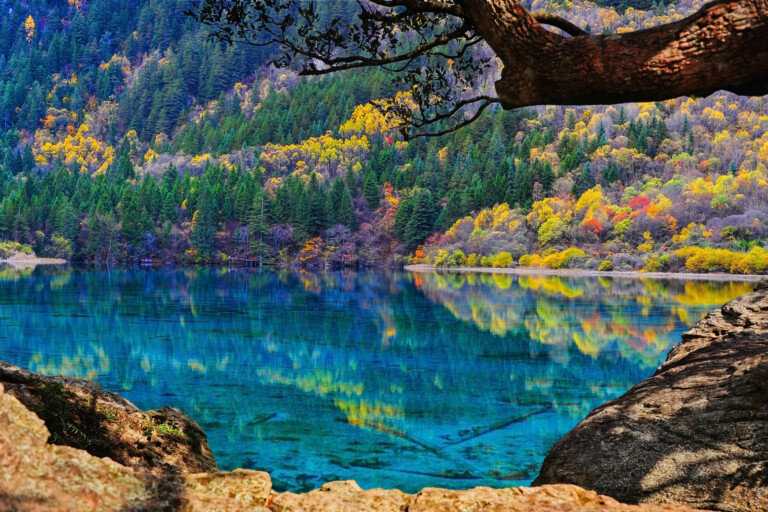
- News
The design journey of Rissai Valley, A Ritz-Carlton Reserve
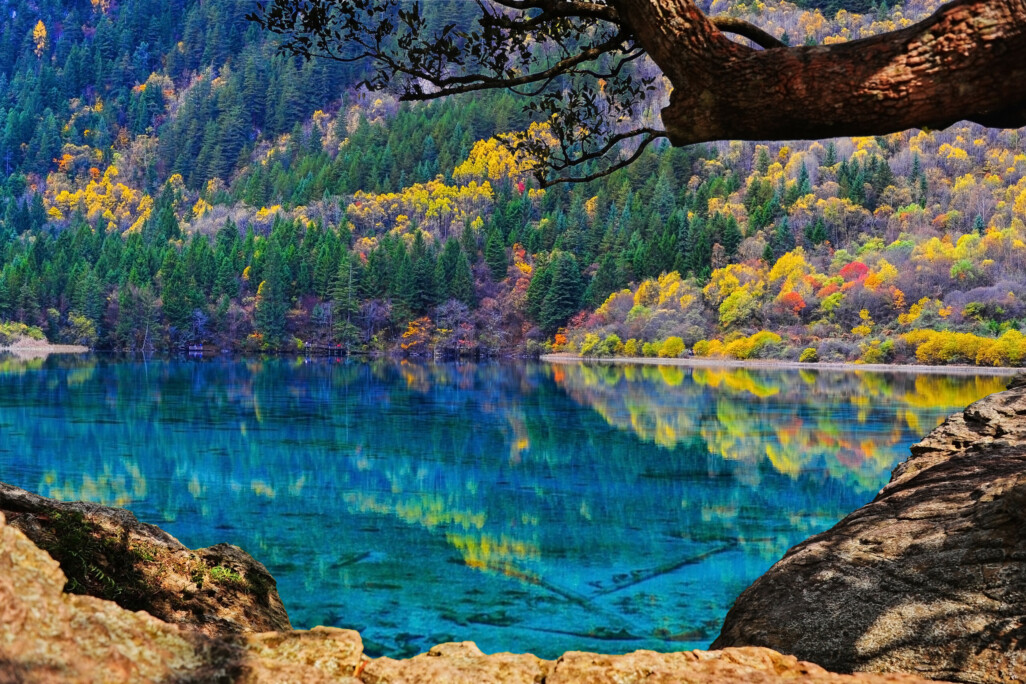
- News
The design journey of Rissai Valley, A Ritz-Carlton Reserve
Sorry, no results found.
Latest Insights
Perspectives, trends, news.
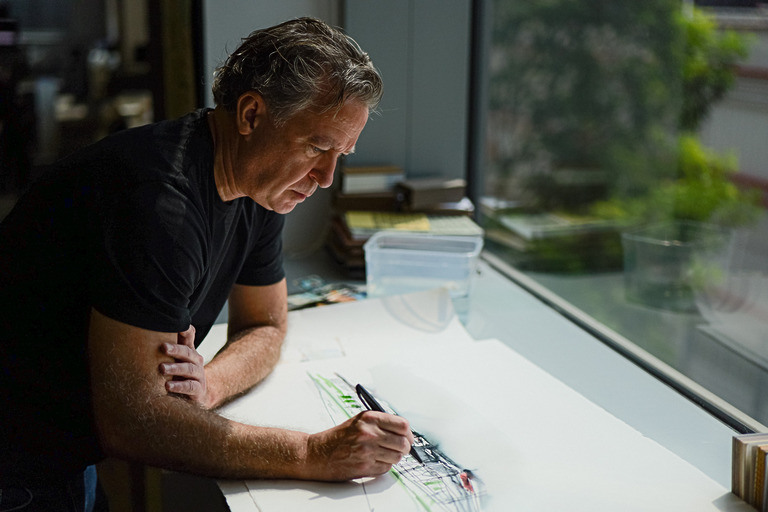
- Employee Feature
Ian Simpson: Constantly Curious, Constantly Creative
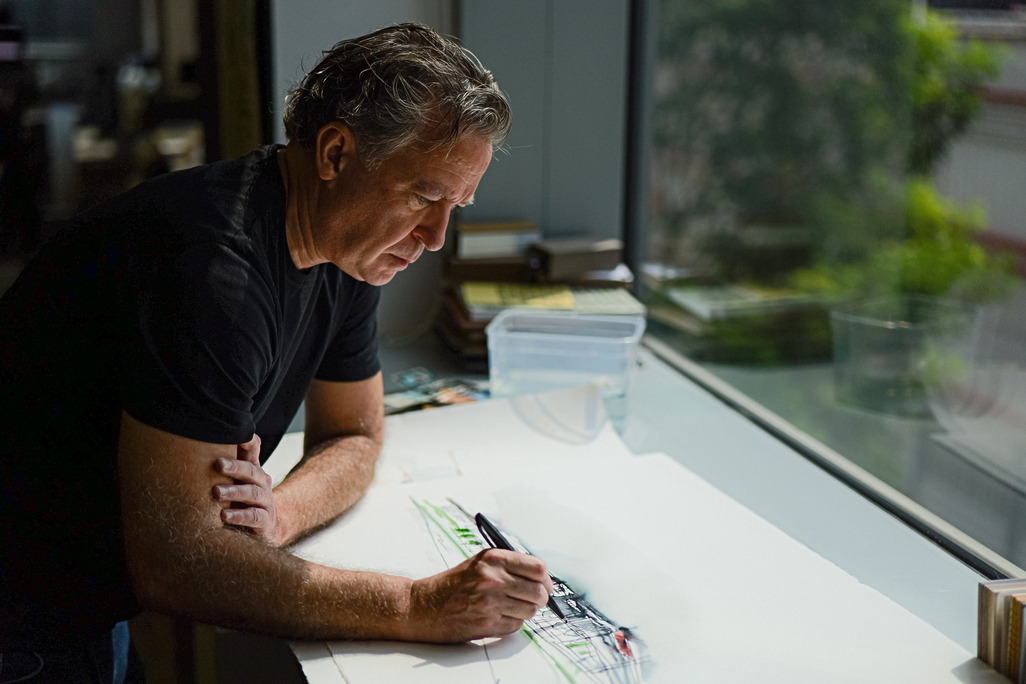
- Employee Feature
Ian Simpson: Constantly Curious, Constantly Creative
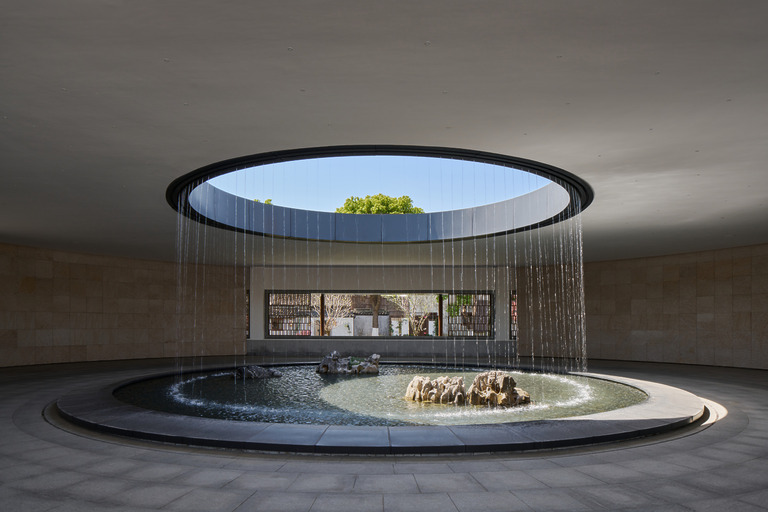
- Strategy & Research |
- Design Thinking & Innovation
Designing the Arrival Experience
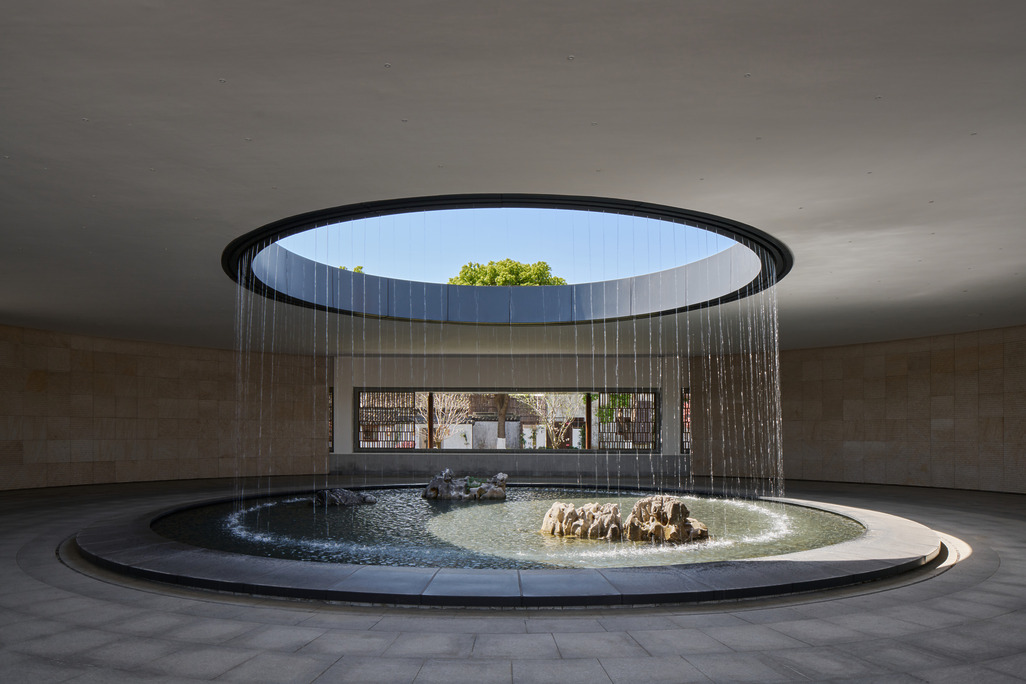
- Strategy & Research |
- Design Thinking & Innovation
Designing the Arrival Experience
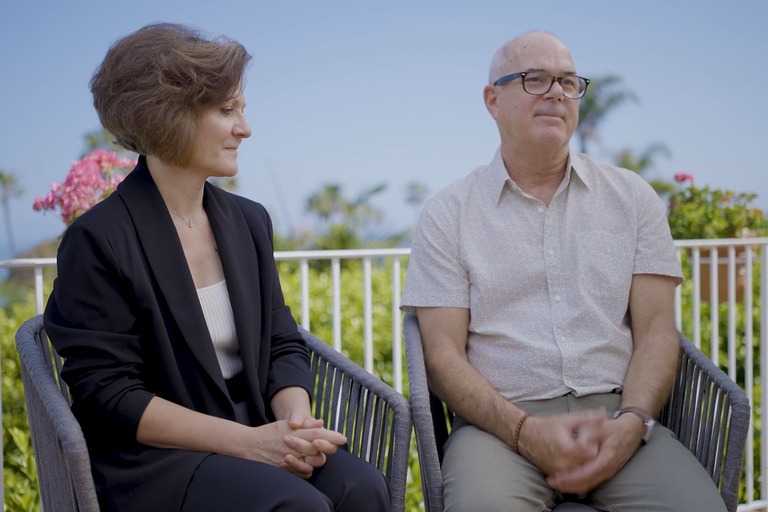
- Employee Feature |
- Inside WATG
Mentorship, Community, and Creativity: WATG’s Blueprint for the Next 80 Years
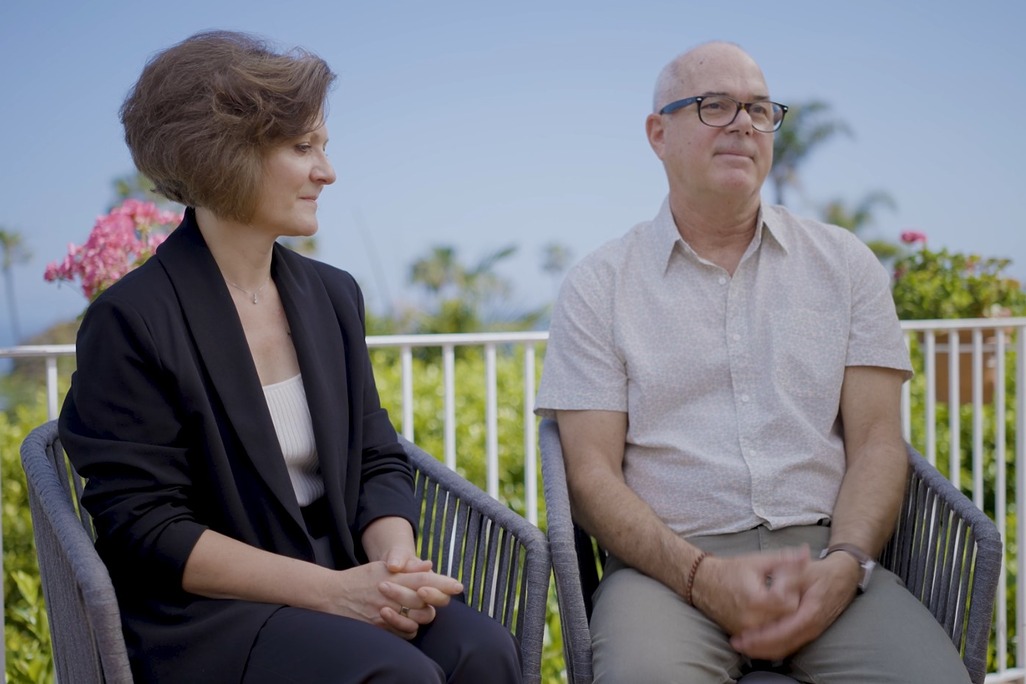
- Employee Feature |
- Inside WATG
Mentorship, Community, and Creativity: WATG’s Blueprint for the Next 80 Years
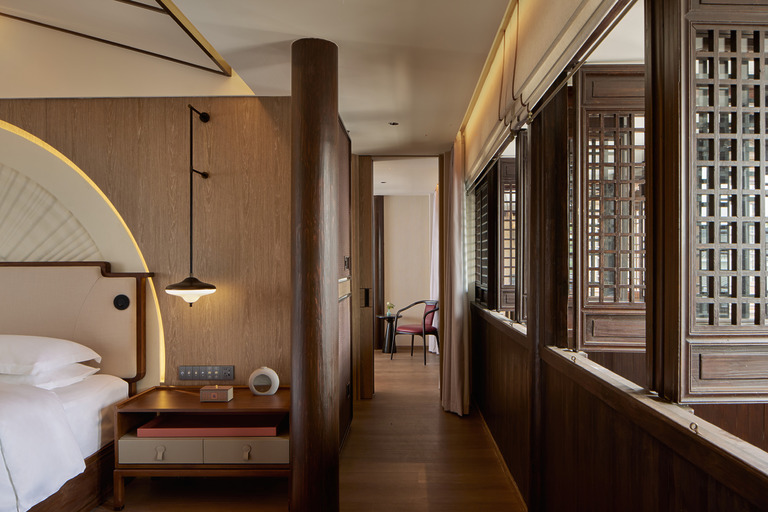
- Strategy & Research |
- Design Thinking & Innovation
Hotel Wuxi MGallery Collection: Part of a Story
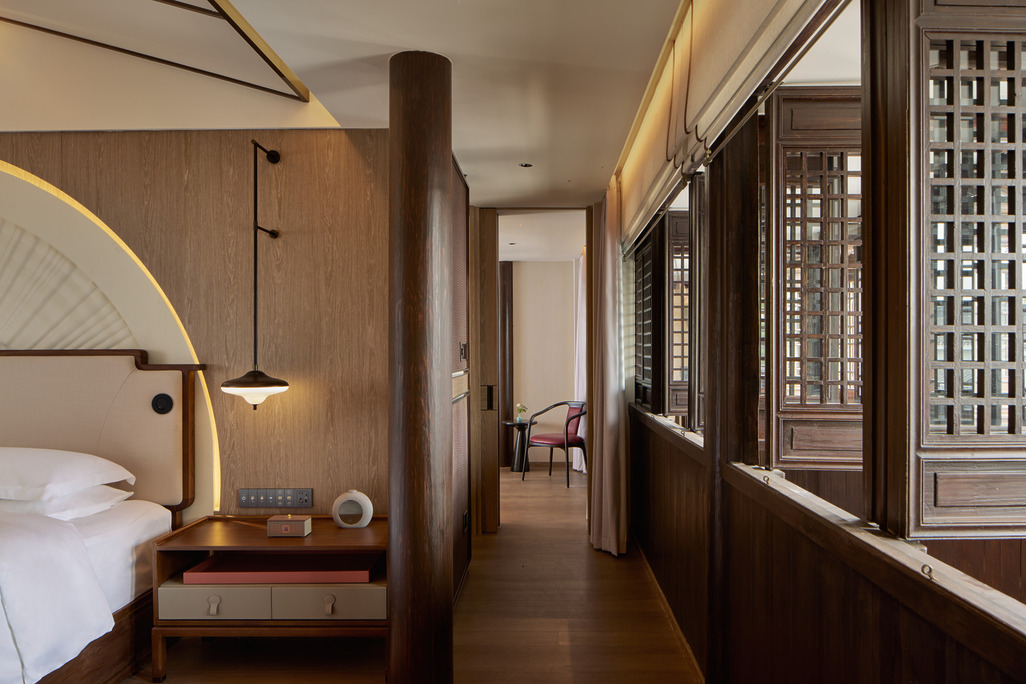
- Strategy & Research |
- Design Thinking & Innovation
